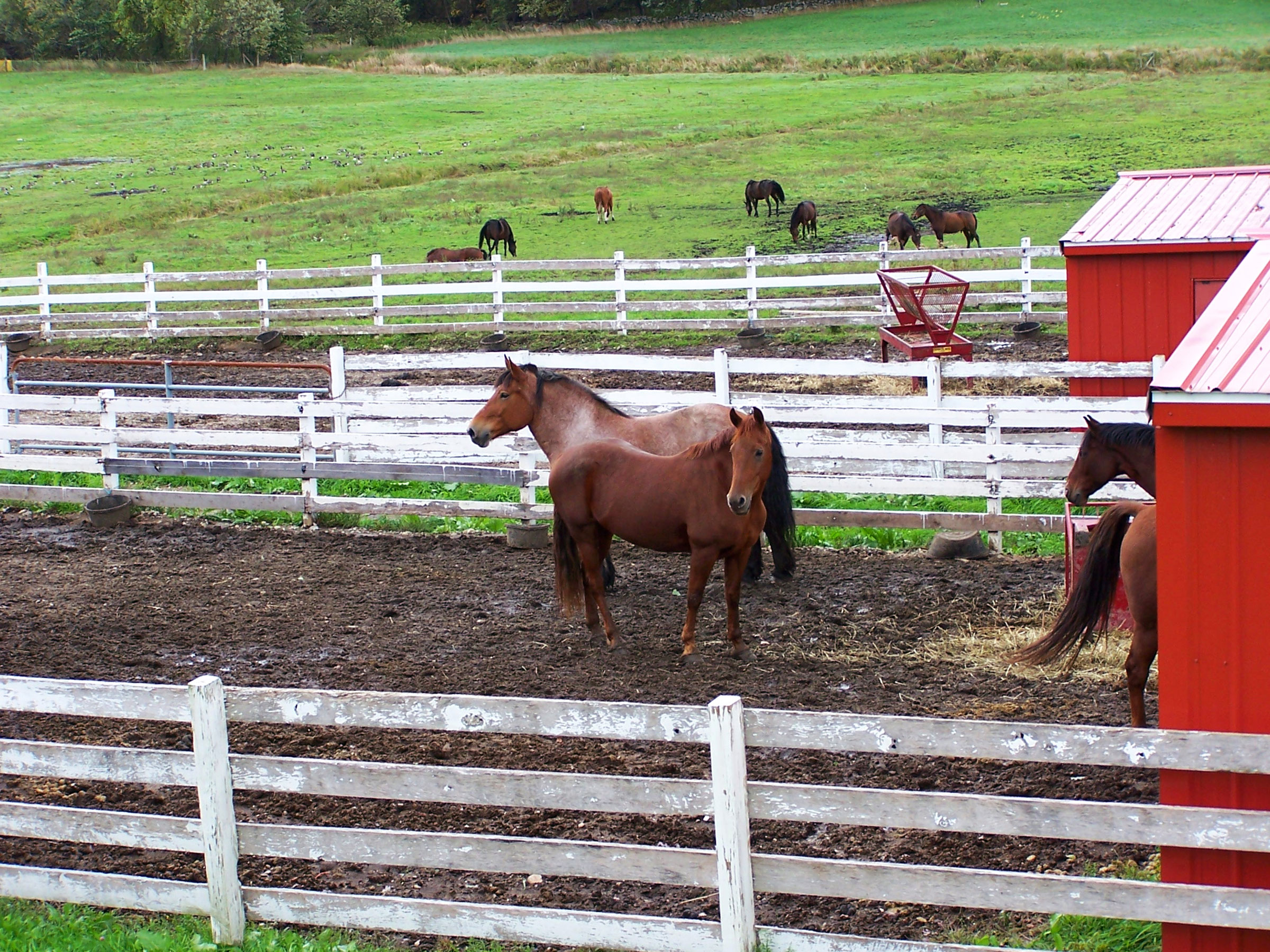
In wet climates or wet seasons, mud can be a challenge in horse pens and pastures. Karen Waite, Extension Horse Specialist, Michigan State University, said that standing continually in mud can be a health issue for horses, especially if they never have a chance to get out of the mud.
Links in articles are part of an Amazon Affiliate program that provides income to support this brand. Links are chosen by our editors.
“Excessive moisture can cause a number of feet and leg problems,” she said. “Bacteria in the soil and mud can make things worse.”
In wet, muddy weather, pay attention to the health of your horses’ feet and skin. The moisture and mud make an ideal environment for bacteria and fungi to multiply. Long winter hair on the body or legs can hide a multitude of skin problems. During a wet, muddy season, you might encounter rain rot, scratches, cracked heels or feet problems such as thrush or abscesses.
Equine business owners can create an Amazon Business Account.
Feet being constantly wet makes them softer and more vulnerable to many problems; a soft hoof wall tends to collapse and splay out over time, and a soft, wet hoof doesn’t hold nails very well. Horses in mud tend to lose shoes because of the soft hoof, or they might scramble in the bad footing and step on one shoe with another foot, jerking the shoe off. Soft feet are also harder for your farrier to deal with.
“Soft feet can lead to more injuries to the hoof wall and sole, and abscesses,” said Waite. “Mud creates bad footing as well, which can lead to leg injuries, strain and stress to joints, muscles, tendons and ligaments. Mud can be slippery and deep. It can be as difficult for the horse to maneuver through as ice and snow.”
Equine business owners can create an Amazon Business Account.
A horse standing in deep, cold mud, in cold rainy weather, will be miserable. If the horse doesn’t have a dry place to lie down, the hair coat will also become matted and muddy. This could lead to skin problems. The hair also loses its insulating quality when it is matted with mud, and the horse will be more likely to chill in cold weather. If there is no dry place for the horse to lie down, he might not lie down very much.
Because horses are reluctant to lie down in deep mud, they might try to lie in an awkward or dangerous place because it happens to be a little less wet than the rest of the paddock. For instance, if horses have made a manure pile at one end of the pen, this built-up spot might be the only relatively dry place—or the first area to dry out in the spring—and a horse might try to roll or lie there. If the built-up area happens to be next to the fence, a horse might lie too close to the fence and become cast, or he could get his legs caught in the fence. He might seriously damage his legs in his struggles to get free, or even perish if he remains cast for a long time, such as at night when no one can see his predicament.
Mud that freezes is a bad scenario for horses. “Frozen mud with ridges and pot holes makes for treacherous footing for both you and the horses,” said Waite. Frozen mud, pock-marked with hoof tracks, creates uneven, slippery footing and could lead to over-extension of joints and subsequent leg injuries.
Laura Kenny, MS, who was the Program Associate in Animal Science, Rutgers University, agreed that mud carries the potential for foot and skin problems for livestock. She suggested that the best time to deal with mud is before it becomes a problem.
Sign up now for Amazon Prime 30-day Free Trials, a membership program that offers special benefits including: Instantly watch thousands of movies and TV episodes; Borrow Kindle books; Get unlimited FREE two-day shipping (no minimum order size). Learn more.



